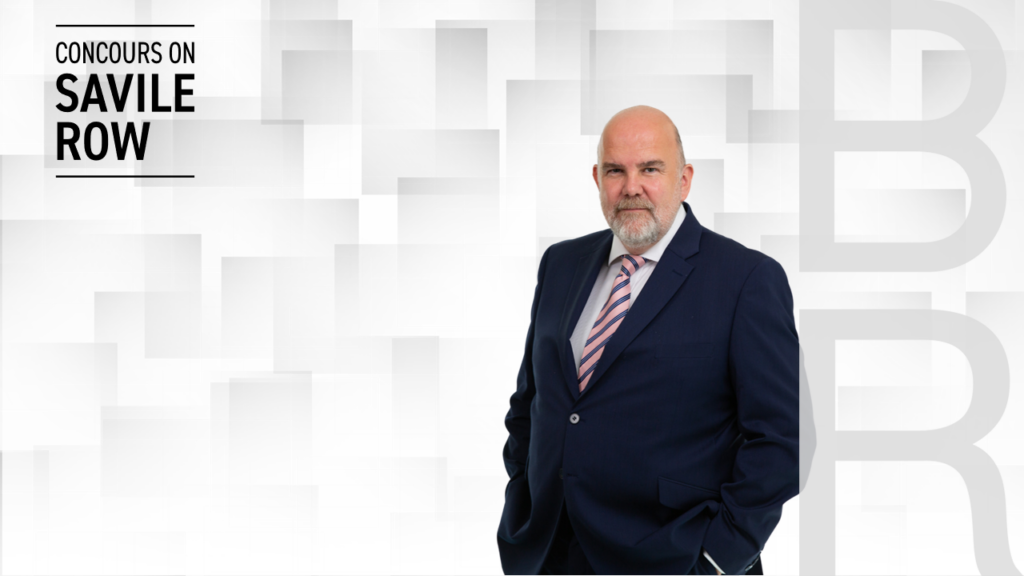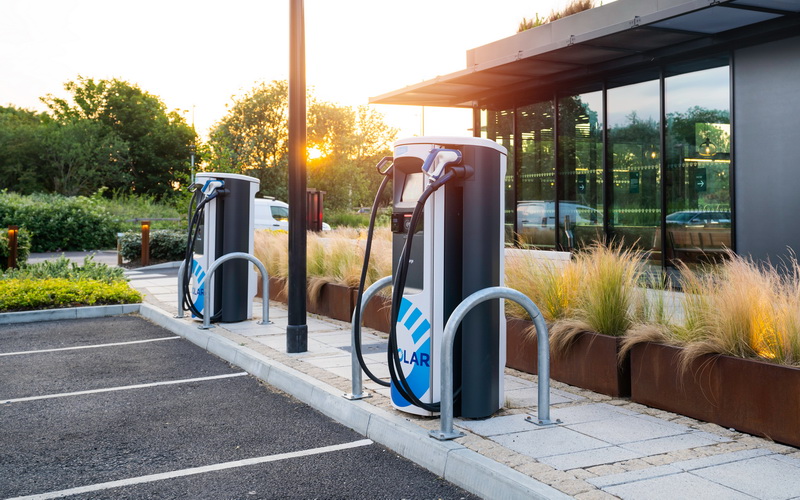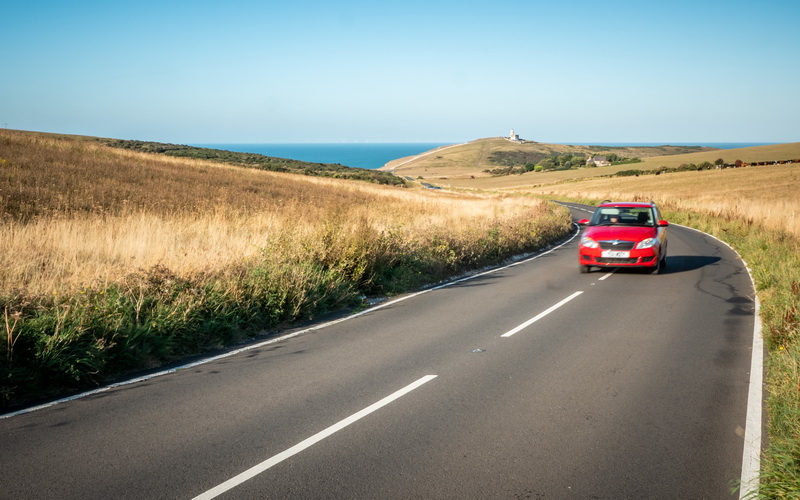
Blick Rothenberg at Concours 2024
Blick Rothenberg at Concours on Savile Row 2024
Seminars exploring the future of motoring
How to preserve both motorcars and the planet and will be discussed at two seminars on May 22 and 23 at Concours on Savile Row in London. The seminars will be held at the Royal Academy of Arts and are sponsored by Blick Rothenberg. The moderator will be motorsports journalist Simon Taylor.
Partner Simon Sutcliffe said:
“We are delighted to be sponsoring the two seminars at this year’s Concours on Savile Row. We have always been at the cutting edge of providing the latest tax, accounting and financial advice to classic car collectors, investors, and traders as well as working with manufacturers.”
As the world moves on, we are now looking at how modern fuels will impact not only on the classic car world but how taxes may be levied in the future to sustain road tax and provide benefits to the modern motorist which does not appear to be on the Government’s agenda.

Restoration and preservation – how tailors, the automotive market and the art world approach sustainability
Wednesday 22 May | 10am
In recent years, there has been an increased focus on how the earth’s resources are consumed and how people around the world are impacted by it – including in the production of traditional and electric motorcars, and the fashion industry.
A panel of experts will discuss the approaches to restoration and preservation that are taken by the art, automotive and tailoring worlds. As well as recycling, upcycling, fast fashion, and sustainability in tailoring and future materials.
Participants are Royal Academy Senior Collections Curator Hannah Higham, Mark Henderson, Chair of the Savile Row Bespoke Association, and Bentley specialist William Medcalf.
Registration for this event has now closed.
The Future of Fuel: The Road to Zero Emissions
Thursday 23 May | 10am
The future of mobility has never been more controversial – in particular, how we fuel our cars and bikes, whether new or classic – and how we minimise their impact on the environment and our wallets.
A panel of experts will discuss short-term versus long-term solutions to our current fuel problems, lifetime carbon impact and classic car conversions. They will also compare hydrogen, electric and synthetic fuels.
Participants are Guy Lachlan, Executive Director of the Historic and Classic Vehicles Alliance (HCVA); Simon Sutcliffe, Customs and Excise Duty Partner at leading tax and business advisory firm Blick Rothenberg; Patrick Fairfield, Head of Commercial at Lunaz Applied Technologies, and William Medcalf.
David Lillywhite, Editorial Director of Hothouse Media said:
The long-term preservation and generally low annual mileages of classic cars means that they’re already surprisingly environmentally friendly – but how can we improve upon that? Sustainable ‘E-fuels’ are already being used in historic racing but are they the best answer?
How about carbon-offsetting or even electric conversions? It’s crucial that we know all the facts, which is why we’ve gathered leading experts to discuss the topic at this seminar.
Registration for this event has now closed.
The race to fuel our cars (and how the winner might be taxed)
Revenues from fuel duty in the UK in 2023/24 netted the UK Government a sizeable £24.8 billion pounds. However, as new technologies develop, and governments push forward decarbonisation and net zero emission plans, this revenue from ‘conventional’ fuel sources looks set to fall.
As we know, governments tax for three reasons: to increase revenues, to reduce consumption and to change behaviours. So how will the UK maintain its revenues but still retain its push towards its climate change goals and create a permanent change in how the motorist makes their choice in terms of the type of vehicle they use and how much mileage they undertake?
These goals depend on what fuel source wins out in the race to power our cars, helps meet those government initiatives, maintain revenues and, importantly, captures the public’s imagination. This is very much like the issues of competing technology we saw in the past, VHS vs Betamax, the 8-track vs the cassette tape and any invention that fails to grip the nation (such as Thomas Edison’s electric motor driven by the static electricity produced by wiring two cats together and rubbing their backs!) some will fall by the wayside and become a footnote, and some will be victorious – despite not always being the best solution.
Experience shows that governments struggle to maintain a consistent narrative on these objectives, as seen by the early attempts to modify VAT rules to encourage the take-up of electric vehicles (EVs). This inadvertently discriminated in favour of petrol/diesel vehicles and denied VAT registered businesses legitimate VAT refunds. Due to high prices, difficulty in obtaining reasonably priced insurance cover and a lack of confidence over the longevity of battery packs, we are experiencing a struggling second-hand market, and sales of EVs are currently falling.
However, we do have rapid developments in the world of biodiesel, ethanol for flex fuel cars, the many colours of hydrogen for fuel cell cars, natural gas and propane propelled vehicles and, of course, electricity. However, many of these fuel types are emission free at the point of use and as such they are not taxed in the conventional way as petrol and diesels. However, these same fuels can be resource- and energy-intensive at their production stage. This leaves a future Government with a few dilemmas:
Do we continue to tax vehicles at their initial purchase and beyond based on their fuel type, emissions, price etc.?
Do we use and expand the fledgling Carbon Border Adjustment Mechanism (CBAM) lifted from the world of international Customs to tax industries and producers using the most resource-intensive and carbon producing techniques?
Do we use modern GPS/in-car technology to embark on ‘road pricing’ tariffs, where those who drive at certain times of the day or on certain routes are taxed more heavily?

Unfortunately, many of the above solutions would solve one issue but potentially lead to inequality of taxation in other areas. For example, many US studies have shown that taxing a car at initial purchase works better at changing purchasing behaviours than taxes on usage like fuel duty. However, carrying those taxes onwards over the years could disadvantage those who buy their cars not only second hand but third and fourth hand.
Currently, there is a disparity between EV users who can charge at home and pay lower prices and only 5% VAT, compared to those who have to use public charging points and pay not only higher prices but 20% VAT on top. Some surveys suggest that public charging can cost more per mile than petrol or diesel which does not help the Government to encourage users to go ‘green’. This current situation discriminates in favour of those with driveways and charging facilities at home and discourages users with no such facilities in urban centres, who one would presume, are precisely the people who can make best use of EVs. If VAT is to be used as one tool in the shift from fossil fuels to electricity and other fuels of the future, then there needs to be a clear Government agenda to encourage a shift in behaviour rather than a perception of revenue raising or penalising petrol and diesel users.
On a wider environmental point, some car manufacturers have published their own research that suggests that it takes between 40,000 and 70,000 miles before a user ‘breaks even’ on the environmental impact of an EV’s whole life cycle. Irrespective of taxation and government policy, replacing fossil fuels with alternatives that do actually benefit the environment is unlikely to be straight forward.
Further, does the issue of car manufacturers monitoring data and sharing it with government agencies and insurers leave many motorists uncomfortable and penalise those in key professions and those living in rural areas?

There are existing regulations that any government could easily seek to expand and utilise before embarking on anything too radical. This may be attractive for those wanting to maintain some degree of status quo. We already mentioned CBAM, but there are existing regulations dating back as early as 2008 such as the Renewable Transport Fuel Obligation (RTFO). These are likely to be extended and could be re-worked for producers of other types of fuels. However, if the system of ‘paying to pollute’ and trading of carbon certification follows the Carbon Tax Credit regimes this will likely lead to widescale fraud and do nothing to reduce carbonisation. For example, landfill taxes which some say have only served to increase the prevalence of fly-tipping.
Clearly though, VAT and other indirect taxes will be part of any taxation regime on fuels of the future, although current Government policy is inconsistent and, in some areas, contradicts the environmental objective.
We likely need an obvious victor in the chosen fuel of choice stakes before we can adequately and accurately anticipate how to tax and that process may take some time to play out.

Would you like to know more?
If you have any questions about the above, please get in touch with your usual Blick Rothenberg contact or Simon using the form on this page.
Classic Car Tax Reliefs and Customs Duty Obligations
Susan Spash, Simon Sutcliffe and Simon Newark look at the key tax considerations and Customs Duty impacts of owning a classic car.

The most prized and sought-after classic cars face the same financial and market challenges as artwork hanging on gallery walls.
However, there are some key taxation and VAT exemptions and reliefs to consider, as well as Customs obligations when looking to move your car across borders.
Cars are functional objects, designed for transport rather than pure aesthetics.
However, like collections of art, collected classic cars are often an expression of their owner and deeply loved, but they come with a limited lifespan – which can be turned to the owner’s benefit in terms of taxation.
These include both personal tax and VAT exemptions and reliefs.
- Cars (classic or not) fall outside the scope of Capital Gains Tax
- beware the risk of being perceived by HMRC as trading in cars with the related tax implications
- While within the scope of Inheritance tax, with planning the classic car may be passed down a generation whilst not losing the opportunity to still take it for a spin
- A collection of classic cars with, for example, national interest may be eligible for Inheritance Tax Heritage Relief
- Owners of cars over 40 years old can apply to stop paying Vehicle Tax and do not need to get an MOT
- A reduced VAT rate of 5% applies to the importation of qualifying classic cars
- Classic cars are for VAT purposes defined as cars at least 30 years old
- HMRC also allow the reduced import rate for a car not more than 30 years old where it is:
extremely rare
is a limited edition
is owned or has been owned by a famous person
has been used in a film or historical event, or
it has achieved significant sporting success at a prestigious or international event - Classic cars qualify for the VAT margin scheme when sold as a business asset
- They can also qualify for VAT relief when temporarily imported to the UK for repair or restoration
Moving classic cars across international borders, especially post-Brexit, creates VAT and customs issues that need to be addressed.
Being organised and understanding your potential customs obligations early on is key to moving a classic car, or any vehicle, across borders.
Aside from deciding if your car is deemed as a classic car for customs purposes – it doesn’t always have to be an ‘automotive unicorn’ – there are a number of customs regimes that can also help and guide an owner as to how to legitimately import and drive their car abroad temporarily or exhibit it at events and meets.”
- These include:
- The granting of a zero rate of Customs Duty on classic cars over 30 years old, also applies to vehicles deemed as ‘collectors’ items’. These ‘collectors’ items’ vehicles do not have to abide by the 30-year qualification rule. However, they have other qualifying criteria regarding their history and sporting heritage
- Qualifying classic cars have to be in their original state and be of a model that is no longer in production
- The zero rate of Customs Duty also extends to parts for these cars. These also have to be original, no longer in production and meet the 30-year qualification rule
- Other reliefs are available that zero both Customs Duty and Import VAT when cars move across frontiers. ‘Transfer Of Residence Relief’, ‘Inherited Goods Relief’ and ‘Temporary Admission’/Carnets can be used for either permanent or temporary movements of vehicles for such events as exhibitions or use whilst the owner is in UK. Thought should be given if the UK-resident owner wants to import their overseas based vehicle and drive it in the UK under these regimes. Regimes such as Inward Processing can be used to import cars (Outward Processing for exports) for repair or restoration will relieve all import taxes whilst the car is undergoing the process
- The UK-EU Trade and Co-operation Agreement allows vehicles that can prove their UK or EU origin, to be moved without the payment of customs duty provided that that are in an unaltered state since initial exportation
Would you like to know more?
If you would like to discuss the personal tax or VAT reliefs or exemptions for your classic car, or how to best manage potential Customs Duty obligations, please get in touch with our team.
Our experts
Contact our team
You may also be interested in

Unlocking Growth: What the Government’s 2025 Industrial Strategy Means for the UK’s Creative Sector

A ray of hope for the Property Market: HMRC transaction data suggests recovery momentum















